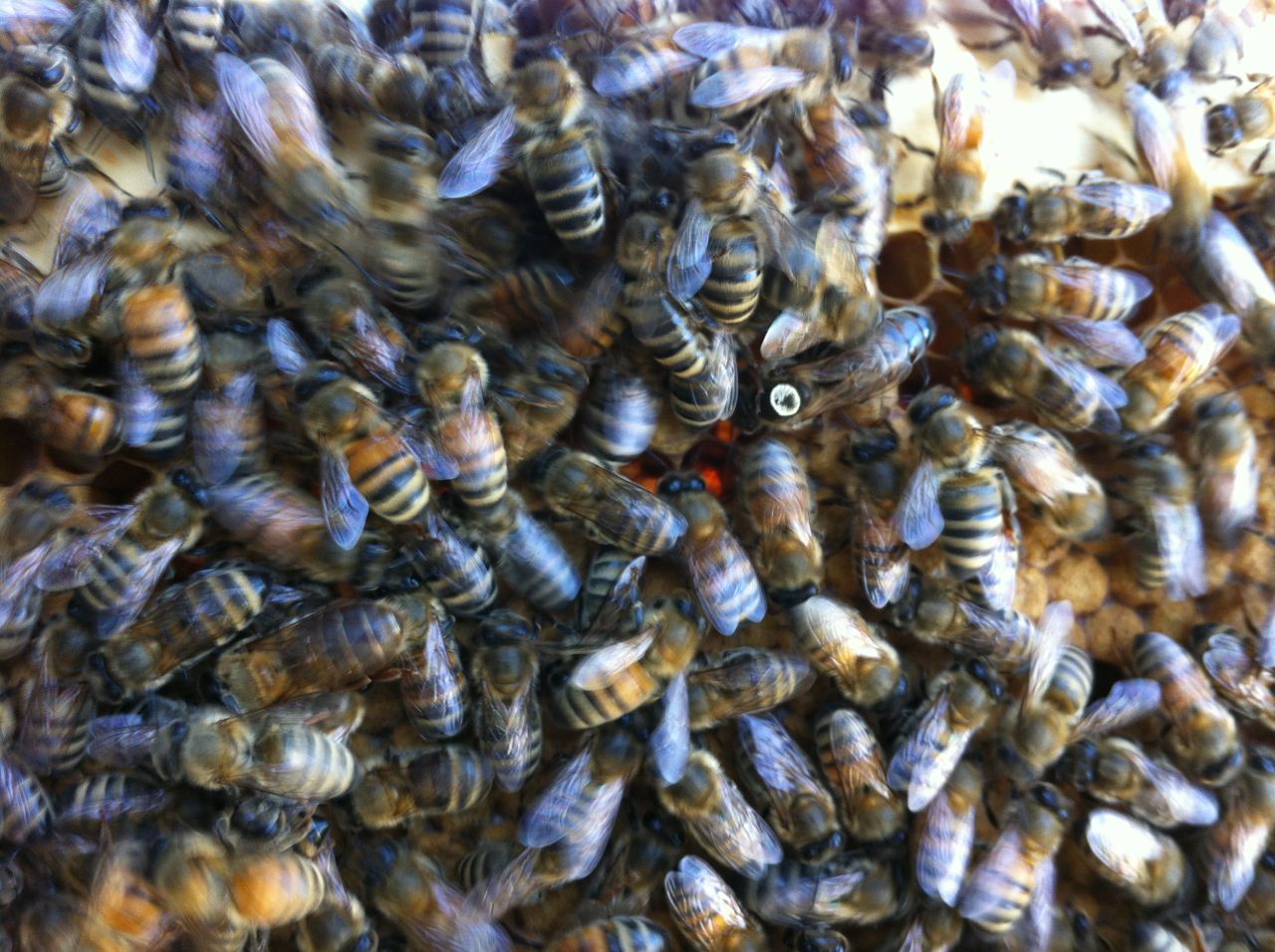
The days are cooling off and getting shorter, farmers are bringing in crops, wood is being stacked, and beekeepers are looking inside their hives for evidence of Varroa mites, one of the largest threats to honey bees in the United States.
In Maine, this means Jack Hildreth, president of the Cumberland County Beekeeping Association (CCBA), and other certified Master Beekeepers are visiting hives kept by members and novice beekeepers to check on colonies and offering advice on how to prepare them for winter.
Hildreth, has spent a lot of his time with bees since he began practicing beekeeping in 2002. He currently maintains six production hives, one observation hive, and 12 nucleus colonies that he overwinters for sale to CCBA members in the spring. Hildreth also participates in annual "bee schools," winter programs designed to provide first and second year beekeepers with enough basic information to get started as a beekeeper.
Here, Hildreth shares tips on lighting a smoker (arguably the single most important tool for a beekeeper when inspecting a hive), testing for Varroa mites, preventing them, extracting honey, and wrapping hives for the winter.
Would you describe your smoker trick -- packing it down, what you use for material?
"I would say it is not really a trick so much as I am trying to keep the smoker fuel always in contact with the coals and if it is loosely packed then they could get separated from the coals and would not ignite, plus since I inspect many hives I only want to have to light my smoker once and keep it going all through the inspections. Nothing is more frustrating than not having smoke available when the hive temperament changes. My material of choice is basic pine needles, they are free and plentiful."
What is your preferred method for testing for Varroa mites?
"I have no preferred method of testing' it is always dependent on the hive and time of year. Toothpicks, sugar rolls, and ether rolls all play a part in testing and will give you data needed to determine your threshold."
What has been your best preventative method for avoiding Varroa mites?
"Apilife Var has been my method of choice as it contains the three essential oils that help combat the mites. Using it in the fall after I pull honey seems to work in my scheduling and it is easily dose control for all sizes of hive configurations, nucs, 10 frames, 8-frame mediums etc."
How much honey have you harvested/do you expect to harvest this year? Is that average, below/above average for your hives?
"Spring crop was only 60 lbs but that was from 2 production hives as I was building up my stock this year. It was slightly below my average for this year and the fall honey hopefully will make up the difference."
How do you decide how much honey to leave the bees?
"My production hives are 2-10 frame deeps and I leave 1-10 frame medium of honey for winter."
How do you know when to harvest?
"As a rule of thumb, July 15 and Sept. 15, but weekends play a big part in that as well as weather and if the honey is capped."
Would you share a description of your (average) harvesting experience?
"I used to only harvest in the fall as that is what time allowed me and available equipment and would get approximately 3-5 gallons buckets out of 4 hives. Now by extracting twice and not having to keep buying more equipment I am getting approximately 1 - 5 gallons bucket per hive per extraction."
Aside from extracting honey, checking honey stores, and fall medications to avoid Varroa mites, what management practices are you undertaking mid-September thru mid-November?
"I also verify that my queens are all marked and feed 2:1 syrup after medications to ensure they can store enough for winter. I will also combine week hives because every bee deserves a good chance to survive the Maine winter."
Do you wrap your hives? Have any thoughts on this?
"I still do wrap some of my hives but found time is my determining factor. I have painted all my hives a dark color now to help with solar gain but still like the added security of tar paper black and how it looks across a field of snowy white."